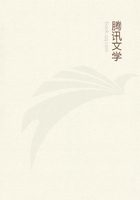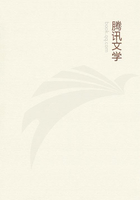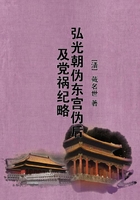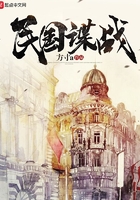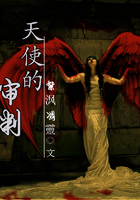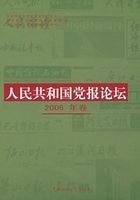I hoped that a cosmopolitan newspaper might feel an obligation to recognize the desire for fair play on the part of thousands of its readers among the Russians, Poles, and Finns, at least to the extent of reproducing these magazine articles under a noncommittal caption. That same Sunday evening, in company with one of the residents, I visited a newspaper office only to hear its representative say that my plan was quite out of the question, as the whole subject was what newspaper men called "a sacred cow." He said, however, that he would willingly print an article which I myself should write and sign. I declined this offer with the statement that one who had my opportunities to see the struggles of poor women in securing support for their children, found it impossible to write anything which would however remotely justify the loosening of marriage bonds, even if the defense of Gorki made by the Russian committees was sound. We left the newspaper office somewhat discouraged with what we thought one more unsuccessful effort to procure a hearing for the immigrants.
I had considered the incident closed, when to my horror and surprise several months afterward it was made the basis of a story with every possible vicious interpretation. One of the Chicago newspapers had been indicted by Mayor Dunne for what he considered an actionable attack upon his appointees to the Chicago School Board of whom I was one, and the incident enlarged and coarsened was submitted as evidence to the Grand Jury in regard to my views and influence. Although the evidence was thrown out, an attempt was again made to revive this story by the managers of Mayor Dunne's second campaign, this time to show how "the protector of the oppressed" was traduced. The incident is related here as an example of the clever use of that old device which throws upon the radical in religion, in education, and in social reform, the oduim of encouraging "harlots and sinners" and of defending their doctrines.
If the under dog were always right, one might quite easily try to defend him. The trouble is that very often he is but obscurely right, sometimes only partially right, and often quite wrong; but perhaps he is never so altogether wrong and pig-headed and utterly reprehensible as he is represented to be by those who add the possession of prejudices to the other almost insuperable difficulties of understanding him. It was, perhaps, not surprising that with these excellent opportunities for misjudging Hull-House, we should have suffered attack from time to time whenever any untoward event gave an opening as when an Italian immigrant murdered a priest in Denver, Colorado. Although the wretched man had never been in Chicago, much less at Hull-House, a Chicago ecclesiastic asserted that he had learned hatred of the Church as a member of the Giordano Bruno Club, an Italian Club, one of whose members lived at Hull-House, and which had occasionally met there, although it had long maintained clubrooms of its own. This club had its origin in the old struggles of united Italy against the temporal power of the Pope, one of the European echoes with which Chicago resounds. The Italian resident, as the editor of a paper representing new Italy, had come in sharp conflict with the Chicago ecclesiastic, first in regard to naming a public school of the vicinity after Garibaldi, which was of course not tolerated by the Church, and then in regard to many another issue arising in anticlericalism, which, although a political party, is constantly involved, from the very nature of the case, in theological difficulties. The contest had been carried on with a bitterness impossible for an American to understand, but its origin and implications were so obvious that it did not occur to any of us that it could be associated with Hull-House either in its motive or direction.
The ecclesiastic himself had lived for years in Rome, and as I had often discussed the problems of Italian politics with him, I was quite sure he understood the raison d'etre for the Giordano Bruno Club. Fortunately in the midst of the rhetorical attack, our friendly relations remained unbroken with the neighboring priests from whom we continued to receive uniform courtesy as we cooperated in cases of sorrow and need. Hundreds of devout communicants identified with the various Hull-House clubs and classes were deeply distressed by the incident, but assured us it was all a misunderstanding. Easter came soon afterwards, and it was not difficult to make a connection between the attack and the myriad of Easter cards which filled my mail.
Thus a Settlement becomes involved in the many difficulties of its neighbors as its experiences make vivid the consciousness of modern internationalism. And yet the very fact that the sense of reality is so keen and the obligation of the Settlement so obvious may perhaps in itself explain the opposition Hull-House has encountered when it expressed its sympathy with the Russian revolution. We were much entertained, although somewhat ruefully, when a Chicago woman withdrew from us a large annual subscription because Hull-House had defended a Russian refugee while she, who had seen much of the Russian aristocracy in Europe, knew from them that all the revolutionary agitation was both unreasonable and unnecessary!
It is, of course impossible to say whether these oppositions were inevitable or whether they were indications that Hull-House had somehow bungled at its task. Many times I have been driven to the confession of the blundering Amiel: "It requires ability to make what we seem agree with what we are."

